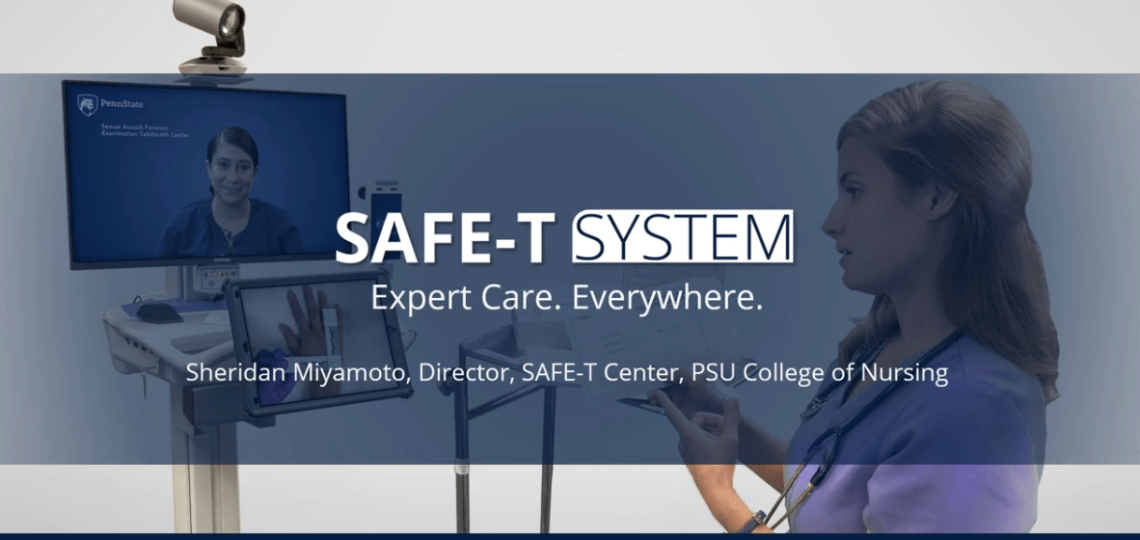
Knocking down the barriers to healthcare for rural sexual assault victims
UNIVERSITY PARK, Pa. — The Penn State College of Nursing’s SAFE-T Center team, led by assistant professor and center director Sheridan Miyamoto, is working to address barriers to healthcare for rural sexual-assault victims with their new telehealth solution, the SAFE-T System.
According to the center, there are more than 284,000 victims of sexual assault across America every year. Victims require timely, skilled, and compassionate healthcare to address injuries, risk of pregnancy, and sexually transmitted infections. Additionally, forensic evidence must be collected accurately and methodically to aid in the successful prosecution of perpetrators. Current technology used to aid in magnification, image capture, and secure storage is expensive and requires substantial technical expertise to administer.
Unfortunately, most U.S. hospitals lack both the adequate equipment to photo-document evidence of assault and the needed expert sexual assault health care providers; nor do they have access to peers who can review findings. In these underserved settings, providers either use hand-held cameras without magnification or forego photo-documentation completely, resulting in inadequate evidence for successful prosecution of perpetrators.
Currently, the SAFE-T Center pairs existing commercial products with custom telehealth solutions and extensive added security protections and deploys the technology suite to rural partner hospitals, enabling a local nurse and victim to receive assistance from an off-site expert, a sexual assault nurse examiner (teleSANE), in real time, as if the expert were present in the room. The technology also has the ability — with the patient’s consent — to enable the on-site nurse to talk with an on-screen forensic nurse, and together, they support the patient. The teleSANE can also see the live exam in progress to help see that compassionate, person-centered care is delivered and evidence collection adheres to best practices.
SAFE-T System — the next generation, improved visualization and telehealth device and platform — aims to provide better visualization of injuries and allow for enhanced security during these sensitive exams at a substantially reduced cost. Miyamoto said she believes that providing nurses with mentoring, live-guidance and advanced telehealth equipment will help provide sexual assault victims with enhanced confidence in their care, a first step toward healing.



